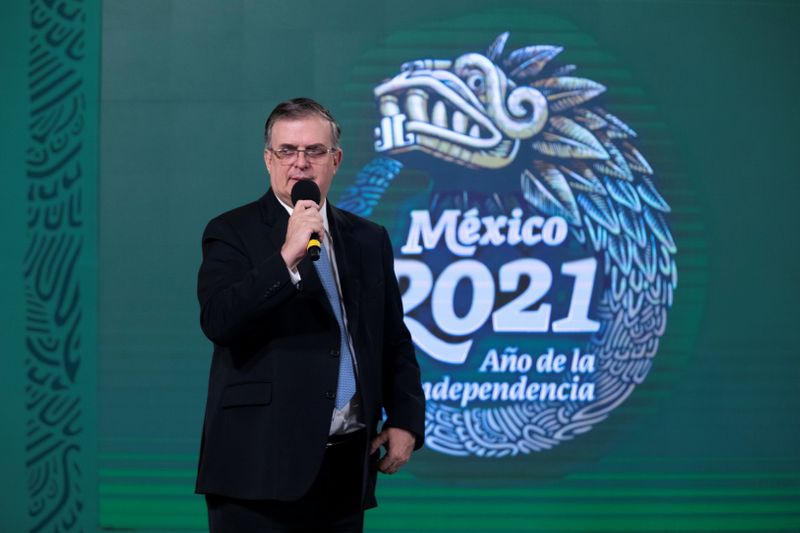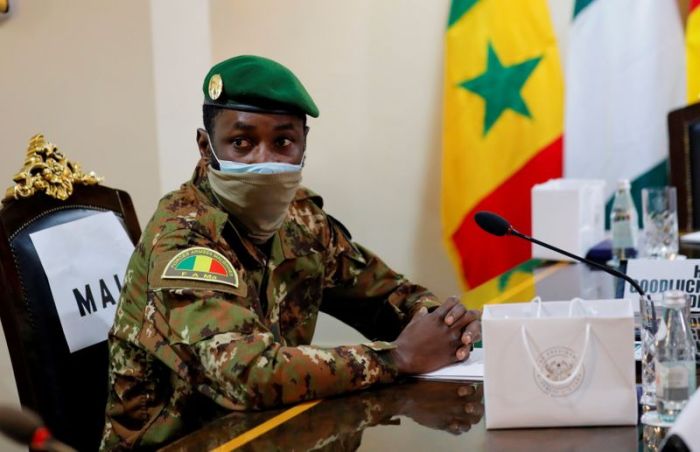MEXICO CITY (Reuters) -Mexican Foreign Minister Marcelo Ebrard on Friday slammed the secretary general of the Organization of American States (OAS) ahead of mid-term elections this weekend, prompting a terse response from the head of the Washington-based association.
During a news conference, Ebrard was asked to explain what role the OAS would play monitoring Sunday’s elections, which will be the biggest in Mexico’s history and will determine who controls Congress for the rest of the administration.
Ebrard responded that the OAS had clearance to send observers but criticized Secretary-General Luis Almagro.
“The performance of the current OAS secretary-general, Mr. Almagro, has been one of the worst in history,” Ebrard said. “He has acted, repeatedly, without consulting the member states … He acts as if he were autonomous.”
Ebrard repeated Mexico’s criticism of the OAS’s role in Bolivian elections in 2019, when then-president Evo Morales resigned under pressure from the armed forces after a presidential vote that the OAS said was rigged in his favor.
Ebrard accused the OAS of “practically fomenting a coup” in Bolivia and said his government would be watching that it and other election observers respected Mexican law. Mexico granted asylum to Morales after he fled Bolivia.
Almagro hit back in an interview with Colombian news channel NTN24, referring to the collapse last month of a rail overpass in Mexico City on a metro line built when Ebrard was mayor of the capital from 2006 to 2012.
“I’m a nice person, and I hope that no other structure that he built as mayor of Mexico City collapses,” the Uruguayan said when asked about Ebrard’s remarks.
Almagro also expressed solidarity with victims of the accident, which killed 26 people.
Following Almagro’s comments, the foreign ministers of Argentina and Bolivia, whose governments are close allies of Mexico, tweeted messages of support for Ebrard against Almagro.
Mexican President Andres Manuel Lopez Obrador has said his foreign policy is guided by the principle of noninterference in the internal affairs of other countries.
Critics say he has departed from that position when dealing with fellow Latin American leftists like Morales.
(Reporting by Adriana Barrera; Additional reporting by Dave Graham; Editing by Jonathan Oatis, Sonya Hepinstall and William Mallard)
























